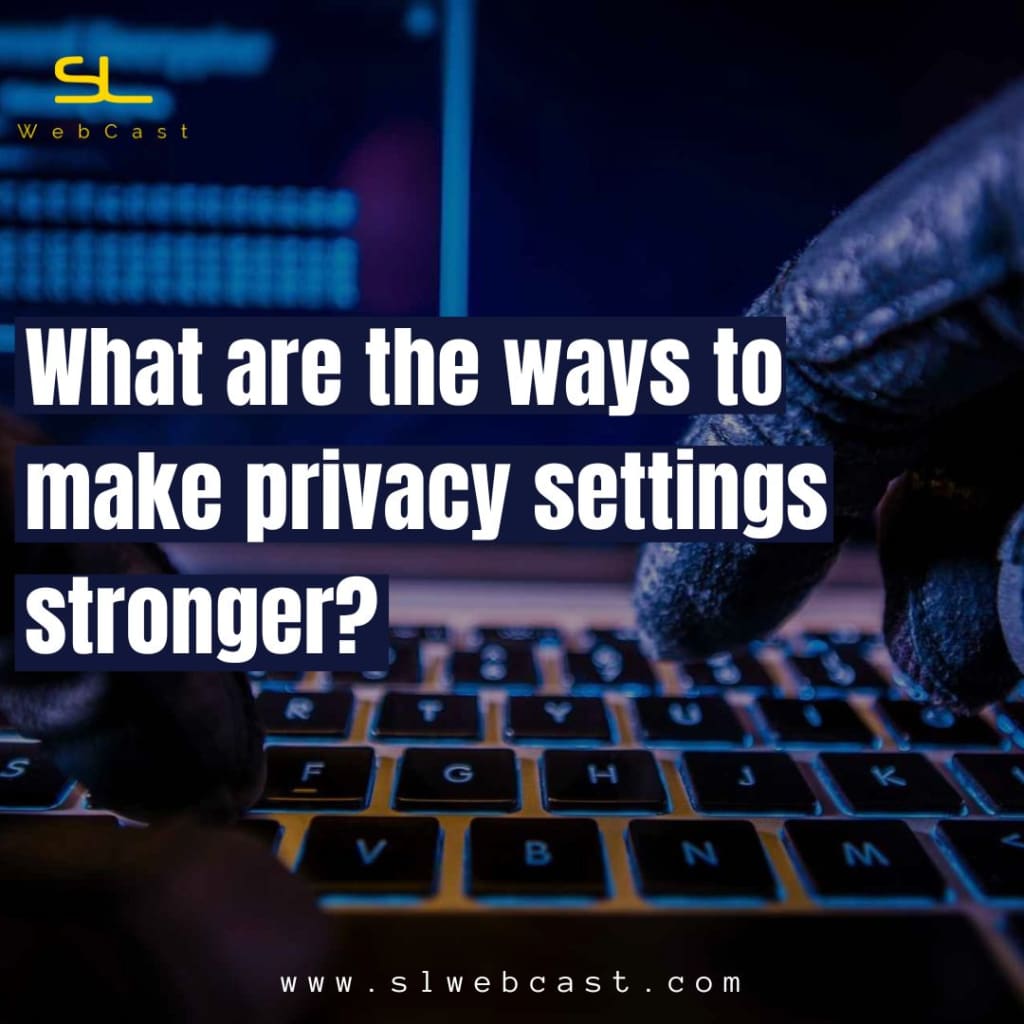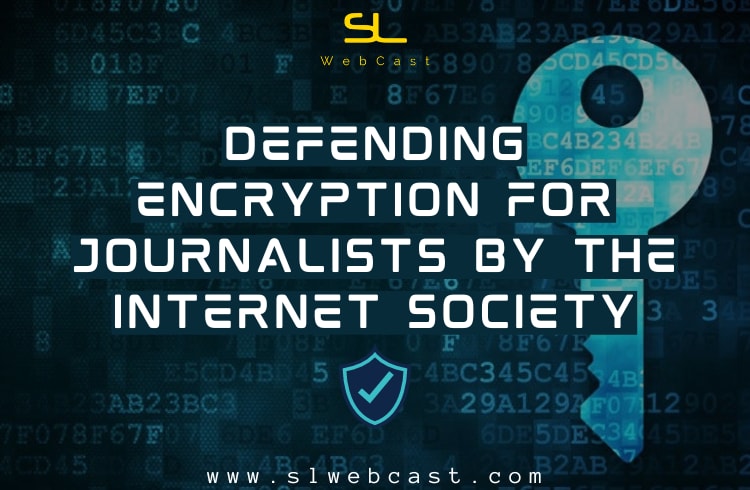The Internet Society is a non-governmental organization that focuses on funding projects that actually strengthen the Internet’s ability to serve all people worldwide. They also work to advance the Internet society’s vision, which is that the Internet is for everyone. They advocate for the use of network-critical techniques that can bring communities together for better healthcare, economic opportunity, and other important goals. Additionally, because they work in a team environment, they also use the internet to share better futures for all those who will have a positive impact on the world’s population.
Some of their projects highlighted issues including the fact that only 50% of people have access to the internet, how people connect online, and the necessity of humans in the online world.
The webinars on encryption, are crucial for journalists and policymakers in today’s digital landscape. It was also an important panel discussion for researchers to ensure that everyone has access to the necessary knowledge.
Additionally, encryption is essential for maintaining the security of sources, safeguarding sensitive data, and providing secure communication routes. Encryption is crucial for journalists to conduct investigative reporting and develop confidence in their sources. To securely share data, balance user security with national security, and protect vital infrastructure, policymakers rely on encryption.
The opportunities they have are as follows:
- The first webinar, entitled “The Role of Journalists in Defending Encryption,” was held on August 30 and 31 and lasted 90 minutes via Zoom. It was available in both English and French. The link to acquire access to the session offered access to the discussions. The certification for participation will be granted when attending the session, but if not, the participant may rewatch the video, complete the assessment, and request the certificate.
- The Implications of Encryption in Public Policies will be the topic of the forthcoming Webinar 2, which will be held on September 26 and 27 in English and French.
In the first webinar, they spoke about what encryption is, when to use it, how it works, the myths of encryption and privacy and why encryption matters. Moreover, questions like why encryption is under threat, what the Internet society is doing regarding it and what can Journalists and Communicators do about this were also discussed.
The webinar’s resource person talked about privacy and encryption myths, how they’re pervasive in today’s society, and how people still have a tendency to accept them even when they’re untrue.

Several of the myths include:
- Knowing the limitations of encryption, they chose not to encrypt their data.
- With outdated hardware, we can observe that reading and writing speeds are slower than they would be if the data were encrypted.
- The use of encryption on HTTPS websites delays browsing; however, the protected link will really be faster.
- Antivirus software is not required on mobile
Additionally, the two types of encryption that are crucial for networking were discussed: symmetric encryption, which involves utilizing the same keys for both encryption and decryption of data.
Asymmetric encryption and decryption involve the use of two keys.
Additionally, encryption is used to safeguard data that is stored on systems, data that is transported across computer networks, such as the Internet, and data that is utilized in financial transactions and private messages in communication.

Subsequently, the resource person discussed ways to make privacy settings stronger:
- Staying up-to-date
- Updating strong passwords
- Updating two-factor authentication
The organizer also talked about the Internet Society, which was founded in 2020 with 350 members and focuses on raising awareness of encryption while also offering technical advice. The Internet Society offers free courses in encryption from modules one to four and is also embedded with partnerships.
The speaker went on to inform the audience about Global Encryption Day on October 21 (people will talk and discuss encryption to raise awareness), which would be followed by advocacy for robust encryption practices and regulations. In addition to that disclosure regarding PGP (Pretty Good Privacy), it is an encryption tool that offers authentication and cryptography for data transfer. It is also used for signing in. It was created by Zimmerman in 1991 and is similar to the open PGP standard.
We were instructed on the Scenario for using PGP: whether a journalist working in a hazardous environment, a businessman discussing sensitive internet packets, or a developer sharing the code of family members’ private emails, open PGP provides its users with peace of mind that comes with nearly military-grade encryption. Therefore, maintaining your privacy and the security of your information are your responsibilities, as are using tools like PGP, which let you file your own pair of cases without involving any outside parties, sources, or colleagues. You can use PGP to encrypt these files before transmitting them. This ensures that even if the files are intercepted, they remain unintelligible to unauthorized individuals. Useful for Windows users, as GPG4Win (Kleopatra) and PGP integrate with a variety of email clients.
Also, our team at SL WebCast, as participants, greatly benefited from the seminar on the Role of Journalists in Defending Encryption. Additionally, it gave people a place to network with one another and learn about other things. The team as well as all of the attendees of this webinar on encryption, which the Internet Society organized, greatly benefited from the insightful discussions, learning a great deal about encryption and how crucial it is to protect online communication and data privacy. In a similar manner, a platform for networking and information sharing has been made available, enabling all attendees to interact with one another and learn about the most recent trends and best practices in encryption technology.
As a conclusion, the webinar on encryption hosted by the Internet Society has shed light on the crucial role that journalists and policymakers play independently of the crucial technology. Additionally, encryption is useful not only for safeguarding our online interactions but also for enabling journalists to confidently conduct investigative reporting and to protect their own sources. It is becoming ever more crucial for every person to comprehend encryption’s genuine capabilities and limitations as discussions surrounding it progress.


